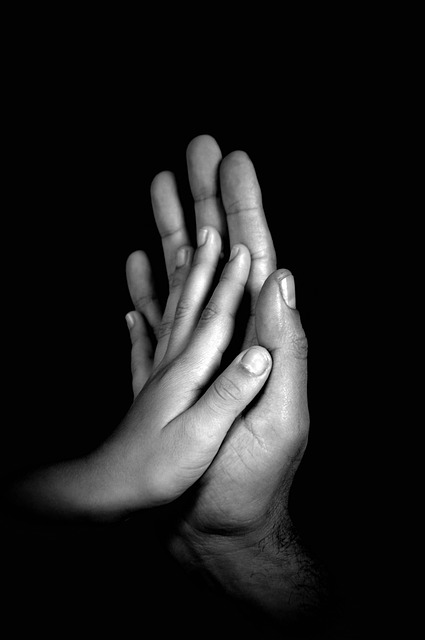Traditional funerals in Albury-Wodonga have a rich and unique cultural heritage that blends indigenous practices with Western traditions. The evolution of these funeral customs from land-based preservation methods to the introduction of cemeteries, headstones, and memorial services reflects the area's history of cultural exchange since European settlement. The 20th century brought advancements in transportation and embalming, which expanded the scope and personalization of funeral ceremonies influenced by different religious denominations. Today, these traditions continue to honor the deceased with a harmonious mix of historical practices and contemporary customs, offering a meaningful way for families to commemorate their loved ones' lives and contributions to the community. The funerals in Albury-Wodonga serve as a testament to the region's diverse cultural legacy and provide solace through religious ceremonies that celebrate life and offer closure during the grieving process.
Welcome to a comprehensive exploration of the enduring tradition of funerals in Albury Wodonga. This article delves into the historical tapestry of funeral practices within this region, offering a window into how these services have evolved over time. From the key milestones that have shaped local funeral customs to the significance of religious rituals and community involvement, we will uncover the cultural essence encapsulated in traditional funerals. As you navigate through the steps to plan a traditional funeral service, we will guide you with practical considerations and tips for personalization that honor both individuality and cultural norms. This comprehensive guide addresses not only the emotional support and healing benefits of these services but also the financial aspects and legal documentation required in Albury Wodonga. Whether you seek to understand the cultural significance, explore modern perspectives on traditional practices, or are simply looking for ways to incorporate ancestral and family traditions into a funeral service, this article is tailored to provide valuable insights. Join us as we honor the legacy of Albury Wodonga’s funeral traditions and offer guidance on planning a meaningful farewell that reflects the deep-rooted values of the community.
- The Historical Evolution of Funeral Practices in Albury-Wodonga
- – Overview of Funerary Traditions Through the Ages
The Historical Evolution of Funeral Practices in Albury-Wodonga

Historically, funeral practices in Albury-Wodonga have evolved significantly, reflecting broader societal changes and the influence of diverse cultural heritages. In the past, indigenous burial customs were practiced, often involving the preservation of bodies in caves or natural shelters, or the return of remains to country as a deep connection with the land was paramount. With European settlement, traditional funerals in Albury-Wodonga began to incorporate Western rituals and beliefs, blending with the existing practices to form a unique cultural tapestry. Over time, the region witnessed the introduction of cemeteries, headstones, and memorial services, which became standard for many families.
The evolution of traditional funerals in Albury-Wodonga continued into the 20th century with advancements in transportation and embalming, allowing for longer journeys and more elaborate ceremonies. The influence of different religious denominations also shaped funeral practices, with services becoming more structured and personalized to reflect individual faiths and beliefs. Today, traditional funerals in Albury-Wodonga are a testament to the rich cultural heritage of the region, offering a blend of historical customs and modern sensibilities. They remain an integral part of the community’s way of honoring and remembering the deceased, ensuring that each service is a fitting tribute that respects both the past and the family’s wishes.
– Overview of Funerary Traditions Through the Ages

Traditional funerals in Albury Wodonga have a rich and storied history that reflects the region’s cultural heritage and community values. Over the ages, funeral traditions have evolved, yet they have retained a deep connection to the practices of previous generations. The area, situated at the confluence of the Murray and Wodonga rivers, has long been a place where diverse communities have come together, each bringing their own customs and beliefs regarding the end-of-life rituals. These traditions often involve religious ceremonies, which may include hymns, prayers, and readings that provide comfort to grieving families and celebrate the life of the deceased.
Throughout history, the way in which funerals were conducted in Albury Wodonga evolved from simple burials marked by indigenous practices to more formalized services influenced by European settlers. Over time, these traditions have been shaped by a blend of cultural influences, including those from the Aboriginal community and the various waves of immigration that have shaped the region’s social fabric. Today, traditional funerals in Albury Wodonga continue to honor this legacy, offering a meaningful way for families to say their final goodbyes while paying tribute to the deceased’s life and contributions to the community. These services often include a visitation or wake, the funeral ceremony itself, and a committal service at the burial site, each element playing a vital role in the mourning process and offering closure for loved ones.
In exploring the enduring tradition of funerals in Albury Wodonga, this article has delved into the rich tapestry of funeral practices that reflect the region’s history and cultural values. From understanding what to expect from a traditional funeral service to navigating the options for personalization and honoring family traditions, readers have gained insights into why many families continue to choose traditional funerals in Albury Wodonga. These services not only offer a solemn farewell but also serve as a testament to life and the cultural heritage of the community. For those contemplating the arrangement of such a service, this comprehensive guide has highlighted the key elements, costs, and benefits associated with traditional funerals, providing a clear framework for decision-making. Ultimately, the article underscores that while funeral practices evolve over time, the essence of these ceremonies—honoring life and providing solace to those grieving—remains steadfastly meaningful and deeply connected to the people of Albury Wodonga.
